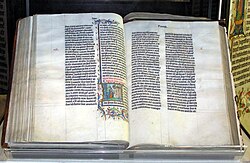This article uses texts from within a religion or faith system without referring to secondary sources that critically analyse them.(February 2019) |
| Part of a series on the |
| Bible |
|---|
 |
| Outline of Bible-related topics |
According to the Torah or the Law of Moses, these are some of the offenses which may merit the death penalty.
